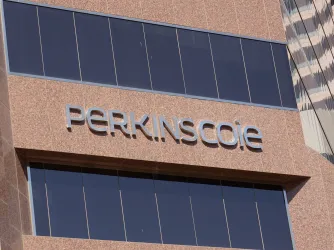Table of Contents
Speech Code of the Month: Colby College

FIRE announces its Speech Code of the Month for July 2016: Colby College in Maine.
Colby’s Bias Incident Prevention and Response protocol encourages students to report on one another to the administration for a wide range of speech and expression. Not only that, but the college recently placed its previously-public “bias incident log” under password protection. When a college or university takes measures to hide information from the public, it usually means the school is doing something privately that it knows would not stand up to the glare of public scrutiny.
Bias incident reporting systems have been around for years, but they have recently been experiencing something of a surge on college campuses. Broadly speaking, these policies urge students to report incidents of perceived biased behavior and speech to the administration for some type of official response. Some schools define bias quite broadly (like Grinnell College, our March 2016 Speech Code of the Month), and others more narrowly. Some explicitly provide for the punishment of bias incidents, while others claim to just be collecting information so they can better respond to incidents that affect the campus climate.
At Colby, a bias incident is defined as follows:
A bias incident is an action that violates College policy and is motivated, in whole or in part, by the perpetrator’s bias or attitude against an individual or group based on perceived or actual personal characteristics, such as race, color, religion, sex, ancestry, national origin, physical or mental disability, age, sexual orientation or gender identity.
If Colby’s other policies did not infringe on protected speech, this definition wouldn’t necessarily be problematic, but they do: Among other things, the college defines harassment as any unwelcome, hostile remarks, whether “spoken or written.” So with this exceedingly broad definition of harassment in place, a reportable bias incident could be almost anything.
And, as FIRE discovered several weeks back, it really can be almost anything. One of the bias incidents reported under the system was that on February 21, 2016, a Colby student used the phrase “on the other hand,” which the reporter of the incident apparently interpreted as indicative of bias on the basis of “ability.”
I tweeted a screenshot of that report on June 30, and within a week, Colby restricted public access to the log by requiring a username and password. Thankfully, a version of the page from June 21 is still available thanks to the wonders of archive.org, so you can see for yourself some of the other reported bias incidents from the past several years. Some of my personal favorites:
- “Swastika carved into a pumpkin. *Report canceled, not a swastika.”
- “At a Halloween party, a student reported seeing three students wearing a sombrero, poncho, and mustache as costumes.”
- “A person reported that during the Colby v. Bowdoin men’s basketball game, a person screamed statements about women and the WNBA to degrade the referee.”
- “A person reported that two members of the basketball team dressed up as Hasidic Jews to celebrate their ninth Annual Mustachio Basho.”
All joking aside, while there is nothing wrong with a college encouraging its students to engage thoughtfully and constructively with one another, there is something distinctly Orwellian about a college administration actively encouraging its students to be on the alert for any possible expressions of bias and to report them to the administration. If students and faculty have to be concerned that any time their expression offends someone, they may be hauled in for a conversation with administrators, they will not feel free to speak their minds.
For proof of that, just ask Mike Jensen, the University of Northern Colorado professor who was called in for a meeting under his institution’s bias reporting policy after he tried to spur a discussion of transgender issues in class. The Greeley Tribune reports:
Although the discussion [with administrators] remained cordial throughout, Jensen now says he feels his academic freedom was violated.
He self-censored “constantly,” Jensen said.
“I did not want to go back in and deal with this and have it go to the next level,” said Jensen, who still teaches in the state.
Colleges, like Colby, that claim to value free speech and academic freedom cannot sacrifice those values on the altar of civility and emotional comfort. For this reason, Colby’s Bias Incident Prevention and Response protocol is our July 2016 Speech Code of the Month.
If you believe that your college’s or university’s policy should be a Speech Code of the Month, please email speechcodes@thefire.org with a link to the policy and a brief description of why you think attention should be drawn to this code. If you are a current college student or faculty member interested in free speech, consider joining the FIRE Student Network, a coalition of college faculty members and students dedicated to advancing individual liberties on their campuses.
Recent Articles
FIRE’s award-winning Newsdesk covers the free speech news you need to stay informed.

FIRE POLL: Only 1/4 of Americans support deporting foreigners for pro-Palestinian views

Harvard’s resistance to Trump is a model for US universities

Sixty-one media organizations and press freedom advocates contest Perkins Coie executive order — First Amendment News 466
